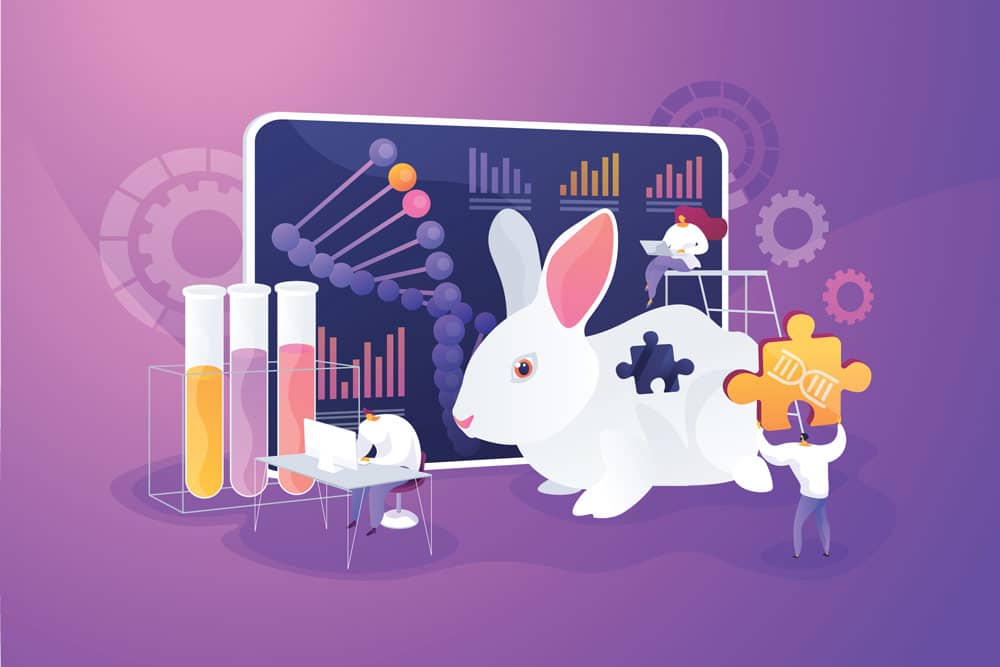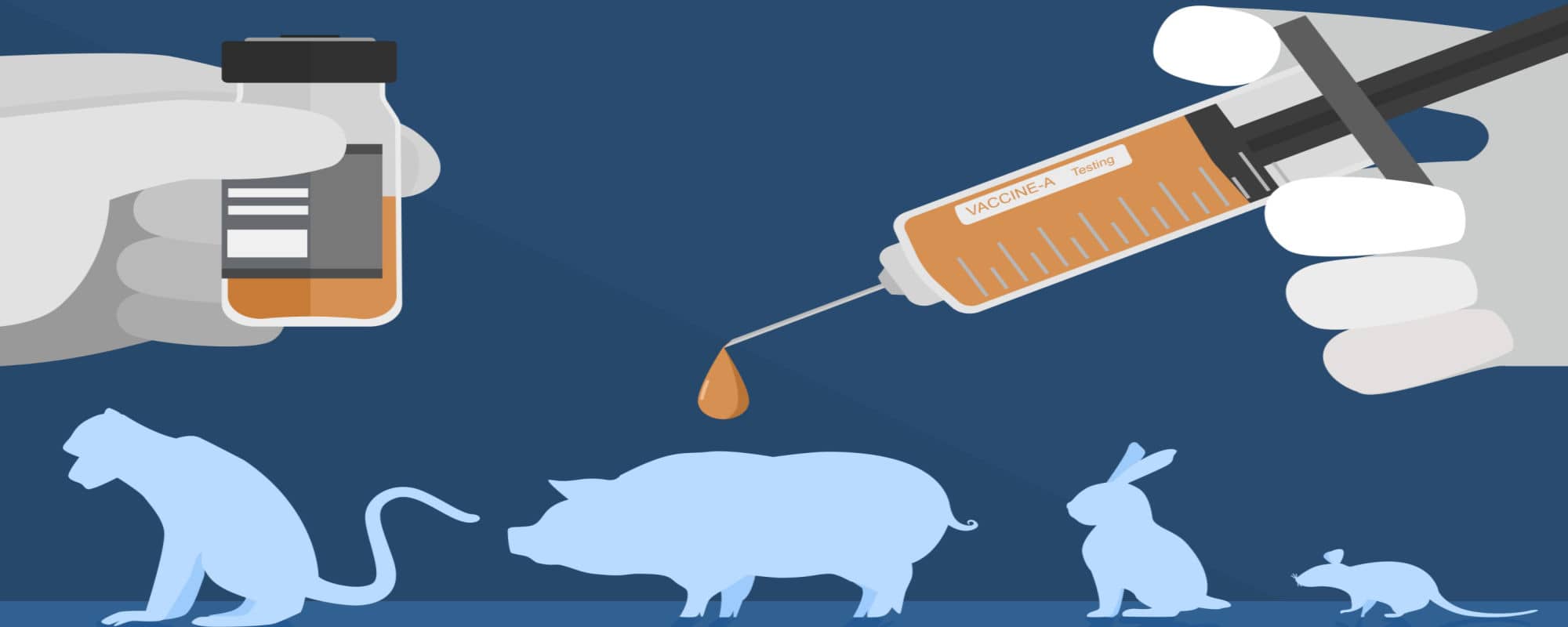The ethical considerations of animal testing have long been debated, with animal activists claiming it’s barbaric and animal research advocates claiming we can’t do research without it. But is the debate really so black and white? Becky Catrin Jones explores where animal testing is necessary and where we might be able to do without it.
When you hear the words ‘animal testing’, what do you think? Rabbits with red eyes or monkeys smoking cigarettes?
In reality in Europe, it’s unlikely that animal testing is really anything like this any more. Strict regulations from the European Union mean that any form of animal testing must be checked, monitored, and justified before it can even get close to being approved.
In 2019, over 10 million animals were used in research in the EU and Norway. The majority of these were rodents (61%), but this number includes fish, amphibians, birds, and mammals. In Malta, the statistics released show that only fish were used in research on the island. But many medical products and devices used in Malta would not be available without the contribution of animal testing.
But even knowing that, we can all agree that we’re not very comfortable with it either. We hear exposés from animal rights groups about animals treated poorly, images of dogs in crates or primates with probes in their heads. Even if the animals are well looked after, thinking about animals undergoing surgery for the sake of research or testing understandably doesn’t sit well.
A Necessary Evil?
So why do we need it? Could we just ban animal testing?
The short answer is no. Current European legislation means that any new drug must be tested in two animal species to be approved. This includes things like vaccines, ointments, and some medical devices. Every one of us who received the COVID-19 vaccine to protect ourselves and others will have benefited from animal research.
Animal testing has played a role in almost every major medical breakthrough in the last century. Without research on fruit flies and mice, we wouldn’t know the functions of many genes in the body. This has been key to understanding genetic links for many diseases, including some cancers, and has enabled researchers to start developing the cures and treatments that we so desperately need.
Research in larger animals like sheep and dogs has helped improve our understanding of how whole organs or systems work. It was thanks to research in dogs that we now know insulin can be used to treat diabetes, a condition which affects around 10% of the adult population in Malta alone. Life-saving blood and organ transplants also wouldn’t have been possible without first being studied in sheep and pigs.

Modern Technologies
But that was then. Surely we know more now? If regulators didn’t require it, would we be in a position to move away from animal testing? To answer this, we need to look at the alternatives.
The good news is that the field of research into alternatives to animal use is growing. A boom of research looking at how we can replicate parts of the human body in vitro, or in the lab, has pushed the agenda forward. Researchers can now build mini replicas of organs, known as organoids, to study how cells talk to each other or what the impact of a drug on an organ might be. The progress in this field is amazing, with some researchers building whole systems of mini-organs connected by artificial blood vessels to understand how things might work in a system.
There are other methods that can help us move away from animal testing too. The beauty of living in a digital age means that a lot of information about patients is being recorded. Studying these large data sets can help researchers identify trends, spot early signs or symptoms, and take measures to understand how existing, approved drugs might be able to help in a different way to originally intended.
A great example of this is metformin, a drug given to some people with diabetes to help lower blood sugar. Researchers spotted that diabetic women taking metformin, who were also diagnosed with cancer of the womb, had much better outcomes than women who weren’t taking the drug. This kick-started a new avenue of research and clinical trials which, if successful, could provide a new treatment option without the need to go back and test in animals. This is known as ‘drug repurposing’, and is an area that looks very promising for the future.
Further advances in using computers or data in research might make it even more likely we can move away from animal testing. Modelling in silico, or by computer, has allowed researchers to try and predict how a new medicine or a compound might interact with different cells and tissues in the body. Using information from countless experiments that have already been conducted in animals or in humans, it could be possible to model how two drugs might work together – or find two drugs that should definitely not be used together.
The Unfortunate Truth
However, the reality is that we are not in a position to ditch animal testing just yet. Take neuroscience as an example. Conditions like Alzheimer’s, dementia, and other neurodegenerative diseases are rising at staggering rates across Europe, and yet we have no effective treatments or cures. There is so much we just don’t know about the human brain, behaviour, and mental health that can’t yet be modelled by cells in a dish. The more we learn about human (and animal) cancers, the more we come to understand that although we’ve come a long way with cancer research, there is so much further to go.
Ultimately, we need to ask ourselves what we are comfortable with. Perhaps nobody likes the idea of testing on animals, but how many of us would volunteer ourselves to receive a dose of a medicine before its safety is known? We must accept that developing non-animal methods to a place where they might be able to replace the animal equivalent will take time and funding. Are we willing to sacrifice this, if it meant reallocating funds which would otherwise have been used to study cancer or neurodegenerative disease?
With so much still unknown, it’s possible we might never reach a position where we could ban animal testing altogether. But that doesn’t mean we shouldn’t keep trying. Investing more into alternatives to animal testing, justifying why they are the only option when they are used, and applying continual scrutiny will help keep up the momentum. After all, the cosmetics ban on animal testing was only possible after years of pressure to look at things another way.
Until then, we must find a balance between celebrating the valuable contribution of animal research to modern medicine while pushing forward to find the next (hopefully non-animal) breakthrough.
Author
-
Becky Catrin Jones is a freelance writer and science communicator based in London, UK. After completing her PhD in cell biology, she moved away from academia and into communication to spend more time talking about and sharing science. Becky has written for THINK since 2017, and managed a number of other blogs including for the international Pint of Science festival. Although biomedical research is a topic close to her heart, she is excited about all areas of research, and has written on subjects from cheese to concrete.
View all posts





Comments are closed for this article!